VIPsight - 1st Edition 2023
COMPANIES
Deutsche Börse AG: Testing the Limits
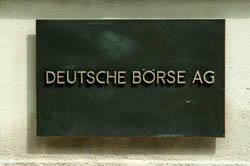 Good relationships with the supervisory authorities are particularly important for financial institutions. After all, financial institutions cannot operate without official approval. What is more, good standing with the regulators is important for the customers´ trust in the solidity of their business?
Good relationships with the supervisory authorities are particularly important for financial institutions. After all, financial institutions cannot operate without official approval. What is more, good standing with the regulators is important for the customers´ trust in the solidity of their business?
These considerations are probably not new for Deutsche Börse either. The current exchange of blows between the Clearstream subsidiary and BaFin is therefore all the more surprising. As early as April 2022, an increase in the underlying equity and the implementation of organizational changes were ordered. This was done following a special audit which revealed that the correctness of the business organization within the meaning of Section 25a (1) KWG in conjunction with Section 25h KWG at Clearstream was not given in all audited areas.
Something like this can happen. Correct mistakes, and move on? Not so much at Clearstream. Here, it looks like they place more value on a sustained stream of bad news. In January 2023, BaFin had to announce that it ordered Clearstream to ensure proper business organization under Section 25a (2) sentence 2 of the KWG and Section 45b (1) KWG. BaFin has also ordered Clearstream to report regularly to BaFin and the Deutsche Bundesbank on the progress made in remedying the deficiencies.
Perhaps the time has come to involve shareholders in this conversation and to explain what is (not?) happening here.
Hamburger Hafen und Logistik AG: Translation Help at the Terminal
 COSCO Shipping Ports Ltd. (COSCO) is a major customer of Hamburger Hafen und Logistik AG (HHLA). Hence, it did not come as a surprise when the companies announced plans to intensify this partnership, including a minority stake in HHLA Container Terminal Tollerort. Given the strategic importance of port facilities, the German Ministry for Economic Affairs and Climate Action was also interested in this process. After all, the relevant question is why was such participation necessary at all if the parties only wanted to deepen the cooperation.
COSCO Shipping Ports Ltd. (COSCO) is a major customer of Hamburger Hafen und Logistik AG (HHLA). Hence, it did not come as a surprise when the companies announced plans to intensify this partnership, including a minority stake in HHLA Container Terminal Tollerort. Given the strategic importance of port facilities, the German Ministry for Economic Affairs and Climate Action was also interested in this process. After all, the relevant question is why was such participation necessary at all if the parties only wanted to deepen the cooperation.
The outcome of this discussion was concrete requirements for COSCO and HHLA if they wanted to proceed with the planned stake in the Terminal. The volume of the maximum investment was limited to 25%, and all strategic decisions shall continue to be made by HHLA. COSCO will not receive any exclusive rights at the Terminal, which is to remain open to container volumes from all customers. COSCO also will not get access to strategic know-how, while IT and sales data remain solely at HHLA´s responsibility.
This looks like a resilient foundation for the terms of the planned minority stake. However, it raises the original question again, this time from COSCO´s point of view. Leaving aside potential dividend income, what other benefits does the investment offer to COSCO? Perhaps this question has also been asked in CHINA. Hence, it didn´t come as a surprise when in early January COSCO made a mandatory announcement in Hong Kong that as of January 6th, 2023 the parties are still considering and discussing the with the Ministry to the conditions, and the non-objection certificate to be issued by the Ministry has not been issued yet.
Does this sound like an easy task to solve? At least HHLA still seems to think so. Given this optimism, one can only wish for speedy success.
SYNLAB AG: In Case of Doubt, send the Message out
Many companies wait until they can no longer avoid publishing bad news. Sometimes the problems solve themselves without any action on your part. And if this doesn´t happen, one at least had a little peace to prepare oneself very carefully for questions from the media and investor audience. Holding back the news is convenient, but it comes at a price. Investors learn quickly when the news comes very late. That leads to mistrust of the investor relations department, but also of the company and its business practice as a whole.
Fortunately, there are good examples of how to do it better, too. A recent SYNLAB release fits that bill. The company the Portuguese Competition Authority has initiated proceedings against, inter alia, two Portuguese entities of SYNLAB Group and has associated SYNLAB AG with the proceedings regarding potential violations of competition law in Portugal. The Authority has formally notified the respective objections. These concern the operations in the Portuguese market for laboratory diagnostics between 2016 and March 2022. SYNLAB will review the objections carefully and decide upon the next steps afterward. The estimated outcome of the proceedings, including the risk of a potential penalty being imposed on SYNLAB, cannot be determined before the completion of this review and progress in the proceedings.
Indeed, this is bad news for the shareholders. But it should be noted that the company decided to inform about the proceedings although it is not yet clear what the consequences of the process will be. Someone did their homework here.
Uniper SE: Time to say Goodbye
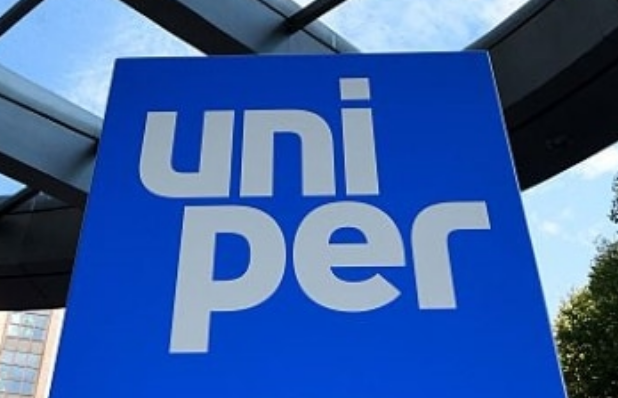 If there was one company in Germany that benefited massively from political windfall profits, then it must be Uniper. But political windfall profits also come at a price. This also includes the risk of a change in the political situation that the company cannot control.
If there was one company in Germany that benefited massively from political windfall profits, then it must be Uniper. But political windfall profits also come at a price. This also includes the risk of a change in the political situation that the company cannot control.
Putin´s hope of buying consent to wipe Ukraine off the map with cheap gas was dashed, as was Uniper´s business model. As a consequence, the company and its shareholders were suffering losses that could no longer be sustained. This resulted in a call for help to the state which could not resist this request given the company´s economic importance.
The result is a short message informing the shareholders that the company´s boards resolved on a capital increase using the Authorized Capital 2022 created by the general meeting on December 19th, 2022. The share capital shall be increased via the issue of new shares. Only the Federal Republic of Germany or a person specified in Section 29 (6) EnSiG is permitted to subscribe for the new shares. Time to say goodbye for the ordinary shareholder!
Rheinmetall AG: Supplied with 100% unreliability Guarantee
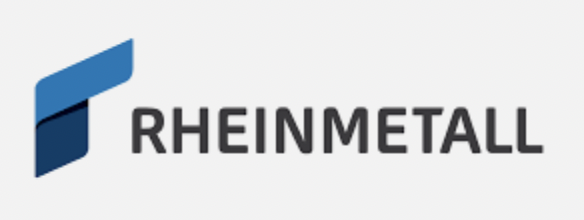 The Russian attack on Ukraine caused a remarkable change of mood in Germany in favor of armaments companies. Rheinmetall also benefited from this. No wonder, that the share price has soared since. As a result, many shareholders sat back and relaxed in the expectation of a pleasant Christmas.
The Russian attack on Ukraine caused a remarkable change of mood in Germany in favor of armaments companies. Rheinmetall also benefited from this. No wonder, that the share price has soared since. As a result, many shareholders sat back and relaxed in the expectation of a pleasant Christmas.
This pleasant situation was severely disturbed from November 18th. On that day, a drastic fall in the share price began, which deepened the following day. On December 19, shareholders also learned the reason for the share price disaster. The Ministry of Defense had presented a briefing on hardware and software problems with the Rheinmetall´s Puma tanks to the German parliament.
Doesn´t that look like a tough pre-Christmas work program for the German financial regulator BaFin?
Linde plc: Are European Standards too high for Linde?
 Linde plc proposed an intercompany reorganization that would result in the delisting of Linde plc shares from the Frankfurt Stock Exchange. In this context, a new holding company would be created through an Irish scheme of arrangement and domestic Irish merger. Shareholders would receive one share of the new holding company to be listed on the New York Stock Exchange.
Linde plc proposed an intercompany reorganization that would result in the delisting of Linde plc shares from the Frankfurt Stock Exchange. In this context, a new holding company would be created through an Irish scheme of arrangement and domestic Irish merger. Shareholders would receive one share of the new holding company to be listed on the New York Stock Exchange.
The message addresses the background to this decision only indirectly. The management and board determined that shareholders of Linde plc have become negatively impacted by various factors associated with the stock being dual listed in the United States and Germany. The key clou can be found here:
“While the dual listing structure has served us well since interception, it has constrained our stock valuation through European restrictions in addition to incremental complexity.”
Some observers took this statement as a reference to the different multiples in major European and American Indices. But this idea is nonsense. The American indices enjoy a higher multiple due the large high-tech component. Linde is not set to become the next Apple, and one should not expect the Linde share to jump to a new level for this reason. What is different, though, are the corporate governance rules, and the regulations of the stock exchanges. Some of the European regulations are obviously more shareholder friendly. Some American regulations are more management friendly.
So it´s the fine print that count. Investors need to find out which essential cost-incurring regulations are no longer applicable when a stock market listing is abandoned and which investor rights are lost in the process. And finally, it is important to quantify the one-time cost of withdrawing from the American or European stock exchanges, and the risks of implementing a decision. Why is it that Linde has not yet announced these minimum information requirements for a decision on the proposal?
Leoni AG: A reliable Bad Luck Raven
 There are some companies that seem to attract misfortune. Unfortunately, Leoni also belongs to this group. The qualification gives a sympathy bonus. But that doesn´t count on the capital market. But at least we can count the company among the regular guests in this category.
There are some companies that seem to attract misfortune. Unfortunately, Leoni also belongs to this group. The qualification gives a sympathy bonus. But that doesn´t count on the capital market. But at least we can count the company among the regular guests in this category.
In mid-December it was time for an update again. This time, Leoni informed that all closing conditions for the closing of the sale and purchase agreement entered on May 23rd, 2022 with STARK Corporation on the sale of the Business Group Automotive Cable Solutions have been timely fulfilled and that the closing was scheduled to occur shortly. However, STARK demanded on December 13th significant amendments to the purchase agreement. Despite willingness to compromise on the side of Leoni, STARK refuses to agree and will not perform the closing according to Leoni. From Leoni`s perspective, no grounds for non-performance of the closing exist, meaning that STARK is in breach of the contract.
From the outsider view, this looks like a typical poker game. The transaction is linked to the refinancing plan, which is the basis for the financing of the Leoni Group until the end of 2025. For this purpose, Leoni has already signed a comprehensive contractual documentation of the refinancing plan with its syndicate banks and borrower´s note holders on the basis of the agreement in principle reached in July 2022. An essential prerequisite for its implementation, however, is a partial repayment of financial liabilities with proceeds from the sale of the Automotive Cable Solutions Group. As a result of the non-performance of the contract by STARK, the refinancing plan cannot be implemented for the time being.
The syndicate banks have already declared (subject to customary approval processes) that they will temporarily extend the credit facilities maturing on December 31st, and Leonie indicated that it will take all measures to enforce its rights against STARK.
Voilá, the classic legal question: Who has more to lose if it takes longer?
flatexDEGIRO AG: Do they understand what they are doing there?
 The general definition of a mistake is doing what you wouldn’t have done if you had realized what you were doing. flatexDEGIRO showed its shareholders how this works in its corporate announcement on December 3rd. At some point in November, the company learned of the results of a BaFin audit. Apparently, the importance of this information was only understood sometime later. The obtuseness is surprising.
The general definition of a mistake is doing what you wouldn’t have done if you had realized what you were doing. flatexDEGIRO showed its shareholders how this works in its corporate announcement on December 3rd. At some point in November, the company learned of the results of a BaFin audit. Apparently, the importance of this information was only understood sometime later. The obtuseness is surprising.
Earlier in the year, BaFin has conducted a special audit at flatexDEGIRO in accordance with section 44 of the KWG (Kreditwesengesetz), identifying shortcomings in business practices and corporate governance. As a result of the audit, BaFin will, among other things, impose flatexDEGIRO to ensure an appropriate business organization, and has issued temporary capital surcharges.
flatexDEGIRO claims that it has immediately initiated various measures to comply with the regulatory requirements, within a specified timeframe. The corporate news dated December 3rd seems to be the first outcome of these initiatives. As an outsider, one can only speculate about the status of the corporate governance at the company. Investors are warned to not take the processing time for the report on the BaFin examination as a proxy in this respect. Although probably ad hoc relevant, the publication of the audit results came a bit late, and the focus was not really on the content of the findings from the audit. However, the message also explained changes to the executive board. Let´s hope that these will help to improve the corporate governance, including a corporate communication suitable for the capital market.
ACTIONS CORNER
ADLER Group S.A.: Will this Bird ever fly again?
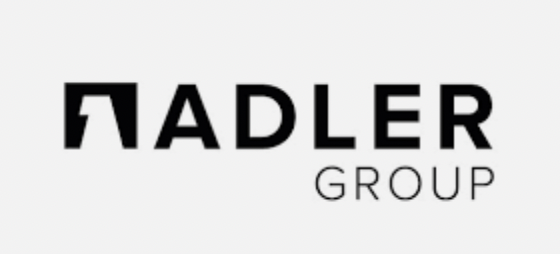 If you put it euphemistically, ADLER Group faces special challenges. Already the known corporate governance problems would be enough to overthrow the average market participant. However, the short-term securing of the company´s financing is much more important. Here, the bondholders are in the foreground.
If you put it euphemistically, ADLER Group faces special challenges. Already the known corporate governance problems would be enough to overthrow the average market participant. However, the short-term securing of the company´s financing is much more important. Here, the bondholders are in the foreground.
On November 25th, 2022, ADLER agreed with certain bondholders to effect changes to its notes. According to the agreement, ADLER would commence a consent solicitation process in respect of each series of its notes to implement the proposed changes. Under German law, a quorum for the bondholders representing at least 50% of the outstanding notes in terms of value and the approval by a majority of at least 75% of the voting bondholders to each series of notes is required for the implementation of the proposed changes. Due to the cross-conditionality of the proposed changes through a consent solicitation, if one series of notes fails to reach the 75% threshold, the proposed changes will not be effective for any other series.
The outcome of the voting was overwhelming support in favor of the consent solicitation with all series of notes but one. In other words, the first attempt failed. Accordingly, ADLER now has to go other ways to possibly reach the goal. A successful outcome is still achievable. But this requires a show running on the very edge of what is possible.
Brenntag SE: Nice that we talked to each other
Brenntag´s shareholders are probably not satisfied with the course of the share price in 2022. It was only in November that the share price recovered for a short time. But on the 25th this was over. On this day, Brenntag confirmed preliminary discussions with Univar Solutions regarding a potential acquisition.
This news was not well received by Brenntag´s shareholders. While the share price came under pressure, shareholders also publicly expressed their critical attitude towards these talks, including a request for the immediate cessation of this project. It is therefore not surprising that Brenntag gave in to this pressure. After all, a takeover also costs money. The redeeming message followed at the beginning of January. The company decided that it is no longer proceeding with these discussions.
It is always gratifying to see that companies listen to their owners. However, corporate communication that is comprehensible to the shareholders is occasionally just as important. After all, the acquisition could have been advantageous for the company´s development and shareholders. It´s a shame we didn´t find out.
GRENKE AG: With kind Regards to Fraser Perring
Activist investors perform an important task in the German market. Nevertheless, their effects are often underestimated. In fact, one can compare their role most closely with vultures in the field of corporate governance. Their main function is to identify problems, thus contributing to a cleaner capital market.
In the recent past, GRENKE AG was one of Fraser Perrings targets. But see where these attacks led. GRENKE decided to undergo substantial changes in its corporate governance, addressing a multitude of issues uncovered on this occasion. Two years later, the company achieved a top ranking in DVFA´s Corporate Governance Scorecard. Achieving 74.14% (2020: just under 52%) of the maximal number of points, GRENKE advanced to third place among a total of 64 assessed SDAX companies.
So as not to be misunderstood here: The price for this success was high. But the effort was essential for the company´s success.
People
CEWE Stiftung & Co. KGaA: Reverse Corporate Governance
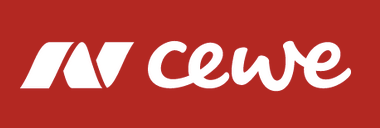 Companies with a limited partnership structure also have corporate governance. The owners of the share-like limited partnership shares mostly have nothing to do with it, though. Instead, other people or companies are in control of these ventures. Sometimes, there can be surprising developments with these complicated constructions.
Companies with a limited partnership structure also have corporate governance. The owners of the share-like limited partnership shares mostly have nothing to do with it, though. Instead, other people or companies are in control of these ventures. Sometimes, there can be surprising developments with these complicated constructions.
If you withhold the corporate governance rights from the shareholders, they ultimately have to stay somewhere else. The result can look like this. CEWE Stiftung is a company with a limited partnership structure. The business of the company is managed by the Neumüller CEWE COLOR Stiftung.
The Board of Trustees of this entity decided on November 29th, 2022 to extend Dr. Rolf Hollander´s term of office as a member and in his function as Chairman of the Board of Trustees. This news was expected by many observers. But the same cannot be said of the further information published a few days later. The Board of Management of the Neumüller CEWE COLOR Stiftung had legal concerns about the conformity of the Board of Trustees' decision.
On January 1st, investors learned the result of this dispute. Following the examination of the vote on Dr. Hollander´s membership of the Board of Trustees, it became clear that the appointment was void according to too legal opinions. Thus, Dr. Hollander´s term of office at CEWE ended by the end of 2022, while the Management Board asked the state foundation supervisory authority to ensure that the Board of Trustees is properly reappointed to remain able to act.
The company was hit by an unexpected power struggle. So, it only remains to wish that the Management Board´s hopes will come true and that unity at CEWE could be restored through a new start in the Board of Trustees and the start of the new CEO, Ms. Yvonne Rostock in 2023.
Fresenius Medical Care AG & Co. KGaA: Wash my Fur, but don´t wet me
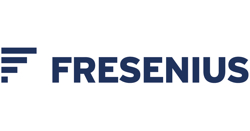 In May, it all sounded like a beautiful dream. The Supervisory Board of Fresenius Medical Care unanimously appointed Dr. Carla Kriwet to succeed Rice Powell as the new CEO of the company. Mr. Powell left the company after 25 years, including a full decade as CEO.
In May, it all sounded like a beautiful dream. The Supervisory Board of Fresenius Medical Care unanimously appointed Dr. Carla Kriwet to succeed Rice Powell as the new CEO of the company. Mr. Powell left the company after 25 years, including a full decade as CEO.
Just a few weeks after taking office on October 1st, Dr. Kriwet had to announce a revision of the earnings outlook. However, the press release was opened with the statement “I am excited having started to work for this great company.” That may have been the case at the time. But such statements are rarely found in a profit warning. Therefore, the announcement regarding Helen Giza to take over as CEO of Fresenius Medical Care was not entirely unexpected. After all, a lot can happen over the course of a month. Here, for example, significant strategic differences seem to have emerged within just a few weeks. Consequently, Dr. Kriwet decided to leave the company at her own request and by mutual agreement due to strategic differences.
Unfortunately, the press release did not explain the meaning of mutual agreement in this case.
Capital News
BAYER AG: Advances in Damage Control open up new Perspectives for Shareholders
 The takeover of Monsanto by BAYER can confidently be classified as one of the biggest money burns in the German capital market. With this acquisition, BAYER bought reputation and legal risks, a business model with an operationally weakening business, and limited strategic perspectives in the agricultural business.
The takeover of Monsanto by BAYER can confidently be classified as one of the biggest money burns in the German capital market. With this acquisition, BAYER bought reputation and legal risks, a business model with an operationally weakening business, and limited strategic perspectives in the agricultural business.
But this is only a snapshot. What is more, one can just as well state that BAYER has managed to get at least a part of the purchased problems under control. While the operative business of the Group is still suffering from the consequences of the Monsanto acquisition, there has been positive news from the legal front for the first time in the past few months. For example, BASF´s claim against BAYER in connection with the sale of parts of BAYER´s agricultural business in 2018 was dismissed by the arbitrator. According to rumors at the time, BASF is said to have demanded 1.7 billion EURO plus interest. Even in times when losses for shareholders are inflated by the Monsanto acquisition, this is a considerable amount. In addition, management capacities are relieved by the elimination of this construction site.
All in all, it can be said that the legal risks for BAYER have become clearer. The transparency gained in this way draws more attention to the potential of the operative business. Manageable risks and unused strategic potential in the operative business arouse the interest of active investors. This brings us back to the well-known question: Does it make more sense to break up the conglomerate to raise values in the short term than to wait for a higher level of earnings from the operating business in the medium term? If the current group structure is to be defended, management must at least provide comprehensible evidence that the operative business will be able to produce stronger results in the future, with fewer risks and improved social acceptance.
So, the race has only just begun.
Drägerwerk AG & Co. KGaA: An Era comes to an End
 For many years, German issuers used profit-sharing certificates to raise equity without corporate governance rights. Profit-sharing certificates securitize borrowed capital with equity-like features and can be traded like stocks. In the meantime, they have been largely superseded by a new legal construction, the share-like limited partnership shares (KGaA). These constructions are more interesting for issuers because they are considered “real” equity instruments despite severely restricted corporate governance rights.
For many years, German issuers used profit-sharing certificates to raise equity without corporate governance rights. Profit-sharing certificates securitize borrowed capital with equity-like features and can be traded like stocks. In the meantime, they have been largely superseded by a new legal construction, the share-like limited partnership shares (KGaA). These constructions are more interesting for issuers because they are considered “real” equity instruments despite severely restricted corporate governance rights.
Drägerwerk was the main remaining issuer of profit-sharing certificates was the main remaining German issuer of profit-sharing certificates outside the financial and media sector. The first issue dates back to 1983. In 2020, the company terminated all outstanding certificates under the terms and conditions. The last tranche was repaid at the beginning of 2023 (nominal), while the dividend-related final payment on these certificates will be made after the AGM 2023.
HELLA GmbH & Co. GmbH KGaA: This is what Vibrations sound like
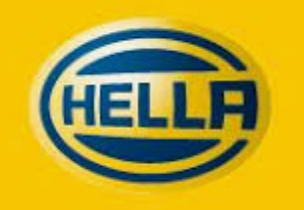 When you hit a bell, there is a sound. When you hit a company, there is a flow of unexpected news. You can see how this looks like at HELLA.
When you hit a bell, there is a sound. When you hit a company, there is a flow of unexpected news. You can see how this looks like at HELLA.
In mid-December, the owners of the share-like limited partnership shares learned that the Management Board and the Shareholders` Committee of HELLA GmbH & Co. KGaA decided to propose to the AGM 2023, in addition to the distribution of a regular dividend a special dividend in the amount of 2.61 EUR per share. The company intends to distribute to its shareholders, including the holders of the limited partnership shares, the proceeds from the sale of its holding in HBPO Beteiligungsgesellschaft mbH.
This looks like a shareholder friendly initiative, thank you. Unfortunately, just a few days later the company also had to announce that the Shareholders´ Committee has agreed with two members of the Management Board to terminate the management contracts by mutual agreement. This is not the first top level change since the new major shareholder came on board. Are there any other material changes in the pipeline?
Bauer AG: Christmas Capital Increase cancelled at Short Notice
Everything looked so beautiful and the preparations were already well advanced. Probably even the Christmas party was planned down to the last cookie. But as we all know, the devil is in the details.
On November 18th, the Extraordinary General Meeting of BAUER voted to approve a capital increase, paving the way for an increase in the company´s share capital from 26.1 million no-nominal-value bearer shares, by up to 17.4 million new shares, against cash contribution.
The announcement of the capital increase added some reassuring information for shareholders. The main shareholder Doblinger Beteiligung GmbH, which at the time held 30% of shares and voting rights according to the last voting right communication, had declared its willingness in participating in the capital increase to a significant extent. Also, SD Thesaurus GmbH, a company in which Ms. Sabine Doblinger has significant holdings, committed under a subscription and purchase agreement to acquire all new shares that are not subscribed for by other shareholders up to a maximum total of 70 million EUR.
This positive news was accompanied by the additional information that the Executive Board had no information as to whether and to what extent the Bauer family, which at the time held 36.03% of the shares in BAUER AG, would exercise its subscription rights as shareholder in the course of the capital increase.
So far, so good. But on December 19th the unpleasant mess followed. The Executive Board decided to suspend the planned capital increase for the time being. To the company´s knowledge a legal action has been filed with the Munich Regional Court I by a shareholder against the resolution of the Extraordinary General Meeting to increase the company´s share capital against cash contributions. Consequently, the subscription period for the rights issue could not begin as planned on December 22nd and had to be postponed for an as yet indefinite period.
TUI AG: Making a clean Sweep
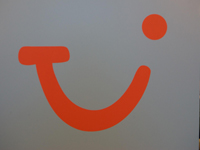 For a while it looked as if TUI would also perish in the COVID maelstrom. However, these voices underestimated the industriousness of TUI and the depth of the government´s coffers. Meanwhile the worst is over and it is time to come to terms with the past. For TUI this means above all the repatriation of the aid money.
For a while it looked as if TUI would also perish in the COVID maelstrom. However, these voices underestimated the industriousness of TUI and the depth of the government´s coffers. Meanwhile the worst is over and it is time to come to terms with the past. For TUI this means above all the repatriation of the aid money.
Mid-December, TUI announced that it has concluded an agreement with the German Economic Stabilization Fund (“WSF”) on the repayment of stabilization measures. This agreement regulates the intended termination of the stabilization measures by means of a right of the company to
- Repayment of the contribution made by the WSF as a silent partner in January 2021 (€420 million), and
- Repurchase the warrant-linked bond 2020/2026 issued by the company to WSF (€57.7 million as well as 58,674,899 option rights),
until December 31st, 2023, at a repayment price of €730,113,240, plus interest accruing until repayment under the stabilization measures.
Under the repayment agreement, TUI is also obliged, to the extent permitted by law, to propose to a General Meeting of Shareholders a reduction in the company´s share capital from currently approx. € 1.785 billion to approx. € 179 million by consolidating shares at a ratio of ten to one.
The amount of the reduction of approx. € 1.606 billion will be allocated to the capital reserves and will not be distributed to shareholders. Furthermore, the company is obligated under the repayment agreement, to the extent permitted by law, to use its best efforts to implement a rights issue capital increase from the authorized capital, the proceeds of which shall be used to finance the repayment of the WSF.
The invitation to the Annual General Meeting, including the full agenda and the corresponding resolution proposals, is expected to be published in the German Federal Gazette (Bundesanzeiger) and on the company´s website at the beginning of January 2023.
The measures come much faster than expected. We will therefore keep our fingers crossed that all shareholders already have the funds required available to participate in the capital increase.















